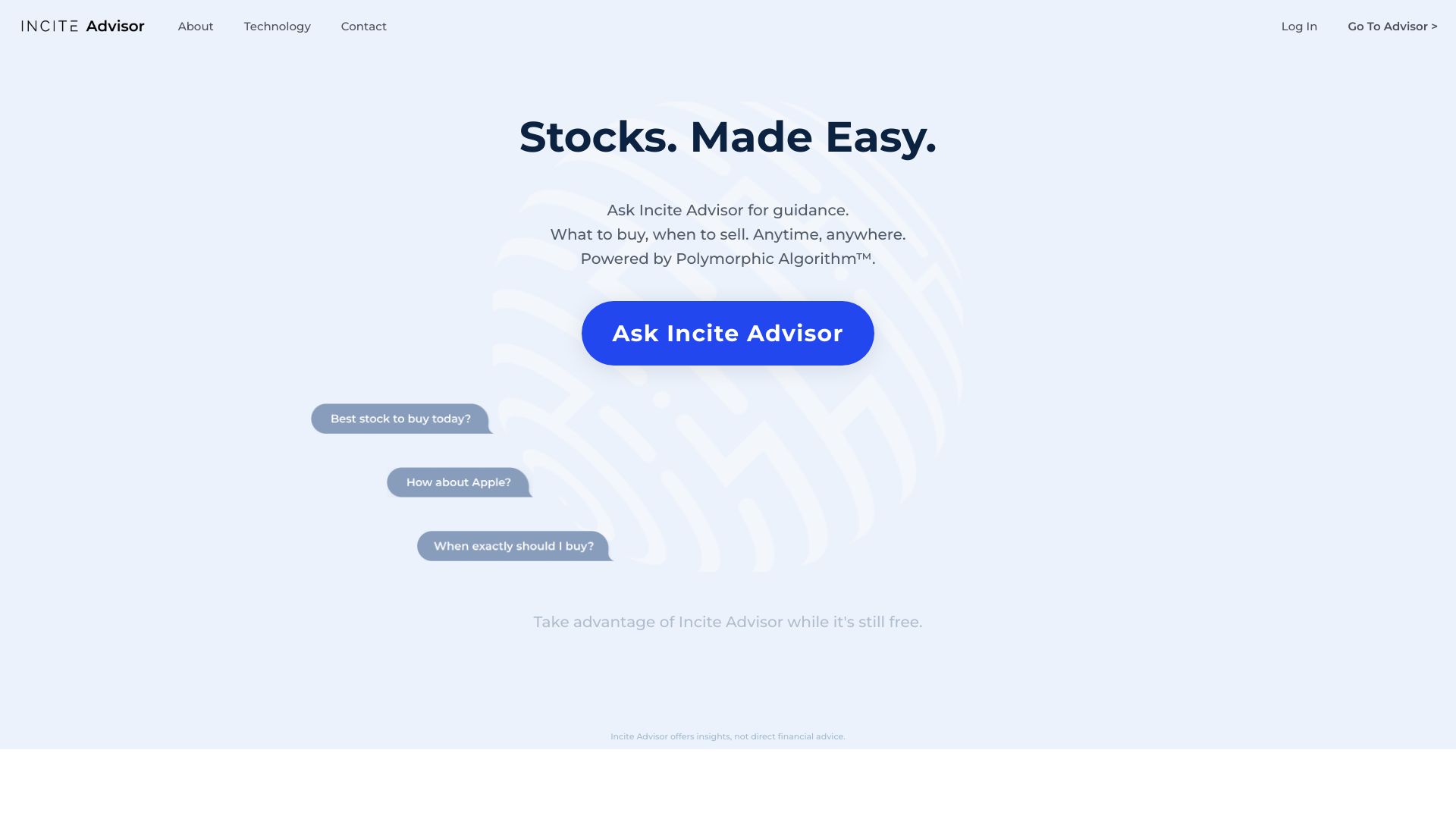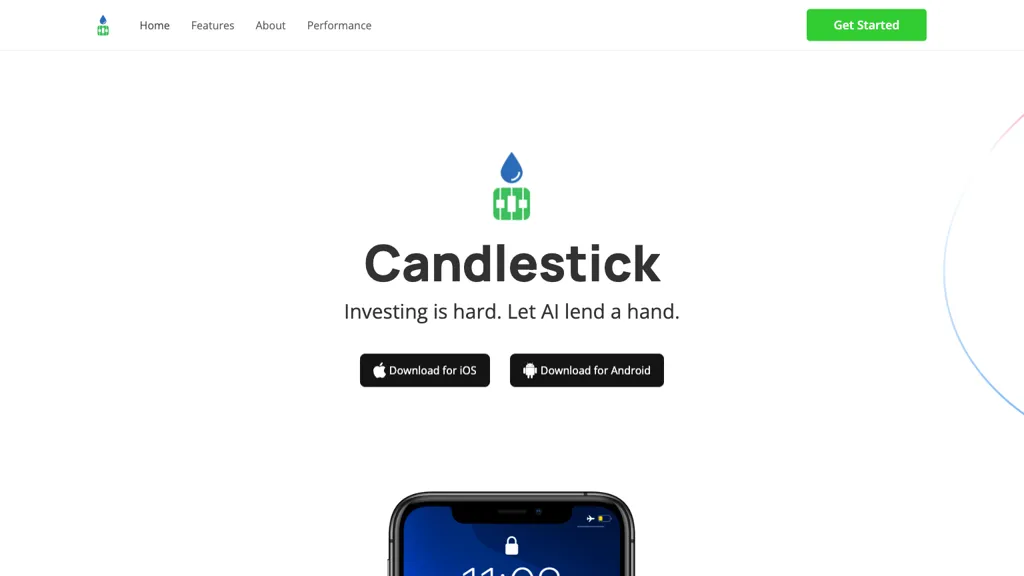Assessing the accuracy and performance of AI stock predicting and analyzing trading platforms is critical to ensure that you're using an AI tool that will provide reliable insights and predictions. These are the top ten tips to evaluate these platforms effectively:
1. Backtesting Results
What to be looking for: Ensure the platform allows you to perform back-testing to determine how accurate their predictions were basing their predictions on historical data.
Why It Matters: Backtesting helps validate the AI model's accuracy by comparing its predictions with actual outcomes from the past.
Search for platforms that have the possibility of setting up backtesting parameters.
2. Real-time Performance Tracking
What to look for What to look for: Examine how the platform performs in real-time market conditions.
Why it Matters: The real-time performance of the platform is an more reliable indicator than past backtesting.
Tip: Try a free trial or demo account to see how you compare the market's real-time forecasts with actual market movements.
3. Prediction Error Metrics
What to Watch Out For: Measure prediction accuracy by using metrics such as the Mean Absolute Error(MAE) or the Root-Mean Squared Error(RMSE), or Rsquared.
Why is it important: These metrics are a quantitative way to gauge how closely predictions are in line with the actual results.
Tips: Platforms that publicly provide these metrics are typically more transparent and trustworthy.
4. Win Rate and Success ratio
What to look out for The platform's success ratio and win rate (percentage of correct prediction).
Why it matters What is important: A high win percentage and success rate suggests better precision in forecasting as well as potential profitability.
It is crucial to be aware of platforms that make false claims (e.g., 90% %+),) in the sense that the system cannot guarantee its success.
5. Benchmarking Market Indices for Benchmarking
What to look for: Compare the platform's predictions and performances to important market indexes, like S&P 500 or NASDAQ.
What's important This will help you determine if your platform outperforms or falls short of the overall market.
Tips: Don't just seek out short-term gains but also a consistent performance over a longer time.
6. Consistency in Market Conditions
What to look for What to look for: See how the platform performs in various market conditions.
Why it matters A reliable platform should be able to perform in a variety of market environments, not just during favorable conditions.
Tip: Test the predictions of the platform during periods of volatility or market fluctuations.
7. Transparency in Methodology
What to Watch Out For Know AI models, algorithms, and techniques (e.g., neural network, reinforcement learning).
Why It Matters: Transparency in methodology helps you determine the validity and scientific rigor of the system.
Beware of platforms that employ models that are "black boxes" without describing how they generate predictions.
8. User Reviews and Independent Tests
What to Look For Reviewer reviews, and look for independent testing or third-party evaluations of the system.
Why is it Important: Independent testing and reviews provide unbiased insight into the platform's accuracy.
Tips: Search for reviews on forums such as Reddit, copyright or financial blogs.
9. Risk-Adjusted Returns
What to Look Out For What to Look For: Assess the platform's performance with risk adjusted metrics such as Sharpe Ratios or Sortino Ratios.
Why it is Important What is important? on the level at which risk is taken to generate returns. This gives the most complete image of performance.
Sharpe ratios (e.g. higher than 1) suggest a higher risk-adjusted rate.
10. Long-term Track Record
What to Look For: Assess the platform's performance over a long period (e.g., 3-5 years).
Why It Matters. Long-term performance can be an excellent indicator of reliability than short term results.
Avoid platforms showcasing only short-term successes or cherry-picked outcomes.
Bonus tip: Try a demo account
You can try out predictions on the platform in real-time without risking any money by using a free trial or demo account. You can assess the reliability and accuracy of the platform first-hand.
By following these tips, you can thoroughly assess the performance and accuracy of AI stock predicting and analyzing platforms. Make sure you select one that matches your investment goals and your risk tolerance. Be aware that no platform can be trusted, so using AI insight and your own research along with the platform's predictions is usually the best choice. Follow the most popular best ai trading app blog for more tips including ai for investing, ai trading, investing ai, stock ai, ai for trading, trading ai, options ai, chart ai trading assistant, AI stock trading bot free, market ai and more.

Top 10 Tips On Assessing The Regulatory Compliance For AI stock Predicting/Analyzing Trading Platforms
Compliance with regulatory requirements plays an essential role in evaluating AI platforms for stock prediction and analysis. Compliance ensures that the platform works within the legal frameworks, safeguards personal data of its users and adheres to financial regulations, which reduces the risk of legal issues or financial penalties. These are the top 10 suggestions for assessing the regulatory compliance of these platforms:
1. Verify Registration and License
Regulators: Check that the platform has been licensed and registered with the relevant financial regulatory agencies (e.g. SEC in U.S.A., FCA UK, ASIC Australia).
Broker partnership: If a platform integrates with brokers, verify that the brokers are also properly licensed and regulated.
Public Records: Visit the website of your regulator body to find out information about the status of your registration as well as past violations and pertinent information.
2. Take Data Privacy Measures Compliance
GDPR: If you operate in or serving users in the EU Make sure that the platform meets the requirements of the General Data Protection Regulation (GDPR).
CCPA For those who reside in California Verify conformity with the California Consumer Privacy Act (CCPA).
Data handling policies: Read the policy on data privacy of the platform to make sure it clarifies how user data is collected and stored. It also outlines how data is shared.
3. Evaluation of Anti-Money-Laundering Measures
AML policies: Ensure that your platform is equipped with a solid AML policy that can detect and stop any laundering of money.
KYC procedures: Check if the platform uses Know Your Customer (KYC), which verifies user identities.
Monitoring transactions: Find out if the platform monitors transactions for suspicious activities and if it reports it to relevant authorities.
4. Verify compliance with Trading Regulations
Market manipulation: Verify that the platform contains measures to avoid market manipulation like spoofing, wash trading.
Order types. Examine whether your platform is in compliance with the rules for orders.
Best execution: Check if the platform is in line with the best execution practices, making sure that trades are executed at the most competitive price.
5. Cybersecurity Assessment
Data encryption. Make sure your platform has encryption to protect user data both in transit and at rest.
Response to incidents: Verify that the platform has a plan for incident response in place to deal with cyber-attacks or data breaches.
Certifications - See if your platform has any cybersecurity certifications.
6. Transparency & Disclosure:
Fee disclosure: Make sure the platform discloses all charges including hidden or additional fees.
Risk disclosure: Check if there are clear and explicit disclosures about risk, particularly for high-risk or leveraged trading strategies.
Performance reporting - Check to see if there are accurate and transparent performance reports provided by the platform for its AI models.
7. Verify compliance with International Regulations
Transparency in trading across borders When you trade internationally, make sure that the platform you are using is in compliance with all applicable regulations.
Tax reporting: Check if the platform provides tools or reports that can aid users in complying with tax laws (e.g., FIFO rules in the U.S.).
Conformity with sanctions: Ensure that the platform is in compliance with sanctions to the sanctions and will not allow dealings or transactions with banned countries or entities.
8. Assess Record-Keeping and Audit Trails
Transaction records: Make sure your platform has detailed records of every transaction for reasons of auditing and regulatory purposes.
User activity logs - Verify that the platform logs all user activity including logins to the platform, trades executed and any modifications to account settings.
Audit readiness: Determine whether your platform is able to provide the required documentation and logs in the event of a regulatory inspection.
9. Assess Compliance with AI-specific Regulations
Algorithmic rules of trading: If a platform allows the use of algorithms, it should comply with European regulations like MiFID II and U.S. Reg SCI.
Fairness and impartiality: Check whether the platform's AI models are monitored and controlled to ensure that they are not biased.
Explainability - Make sure that the system is able to clearly and concisely explain regarding AI-driven predictions, decision-making, etc. as required by certain rules.
10. Review user feedback and review the regulatory history
User feedback: Review user reviews to assess the platform’s reputation for compliance with regulations.
The history of regulatory compliance - see if the platform is associated with any prior legal violations or fines.
Third-party inspections: Check if the platform is subjected regularly to third-party inspections by a third party in order to ensure compliance.
Bonus Tips:
Legal consultation: Talk to a lawyer to ensure that the platform is in compliance with all relevant regulations.
Trial period: Try the platform free of charge or utilize the demo feature to test out its compliance features and documentation.
Customer Support: Ensure that the platform provides assistance to customers with any questions or issues related to compliance.
Check these points to determine the regulatory compliance and protection of your interests. Compliance not only reduces legal risks but also builds confidence and trust in the service of the platform. Read the top additional resources for stock trading ai for blog info including AI stock price prediction, ai copyright signals, invest ai, ai share trading, stocks ai, ai trading tool, best ai trading platform, stock trading ai, AI stock prediction, best AI stock prediction and more.
